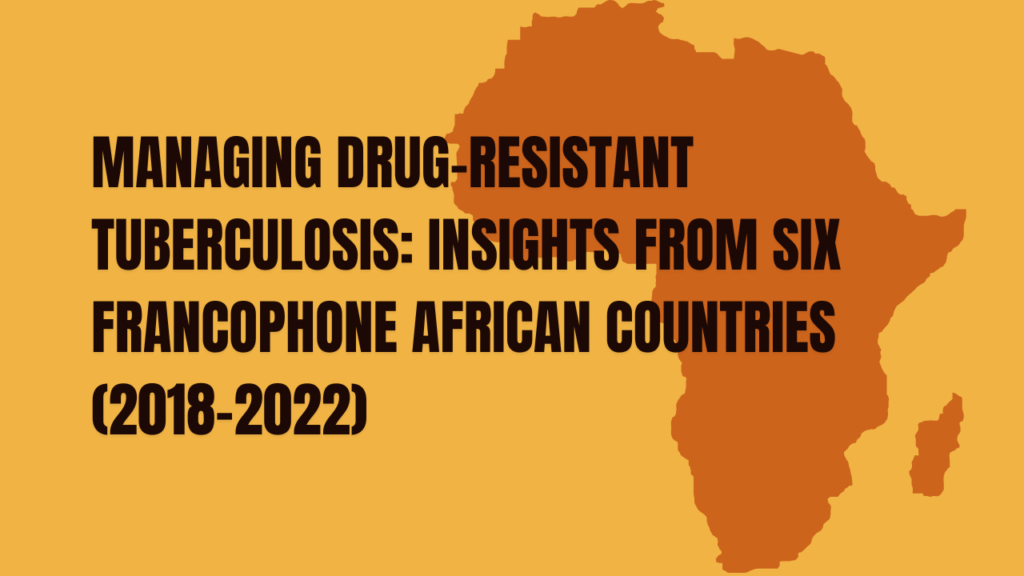
An Overview of the Management of Drug-Resistant Tuberculosis in Six French-Speaking African Countries from 2018 to 2022

Abstract
Drug-resistant tuberculosis (DR-TB) poses a significant public health challenge, particularly
in resource-limited settings. The prevalence and management of DR-TB in African countries require
comprehensive strategies to improve patient outcomes and control the spread of the disease. Aggregated routine data (from 2018 to 2022) on multidrug-resistant TB (MDR-TB) were collected from
the National TB Programs (NTPs) from all six countries. The diagnostic capacity for MDR-TB was
globally insufficient. The system for collecting and transporting samples was sometimes inoperative.
A total of 2353 cases of MDR-TB were reported, with 86.4% receiving treatment. The gap between
the expected number of MDR-TB cases and the number reported per country varied from 51.5% to
88.0%, depending on the year. Fifty-two extensively drug-resistant (XDR) TB cases received treatment
regimens over five years, with variations across countries. All patients received free follow-up examinations, nutritional and financial support for travel expenses to the outpatient care and treatment
centers. The MDR-TB treatment success rates for all regimens between 2018 and 2021 ranged from
44.4 to 90.9%, varying by country and year. The information system relied on primary tools, reporting
tools, and digital solutions. Progress has been made in MDR-TB management; however, challenges
persist, necessitating resources to enhance access to rapid molecular screening tests.
